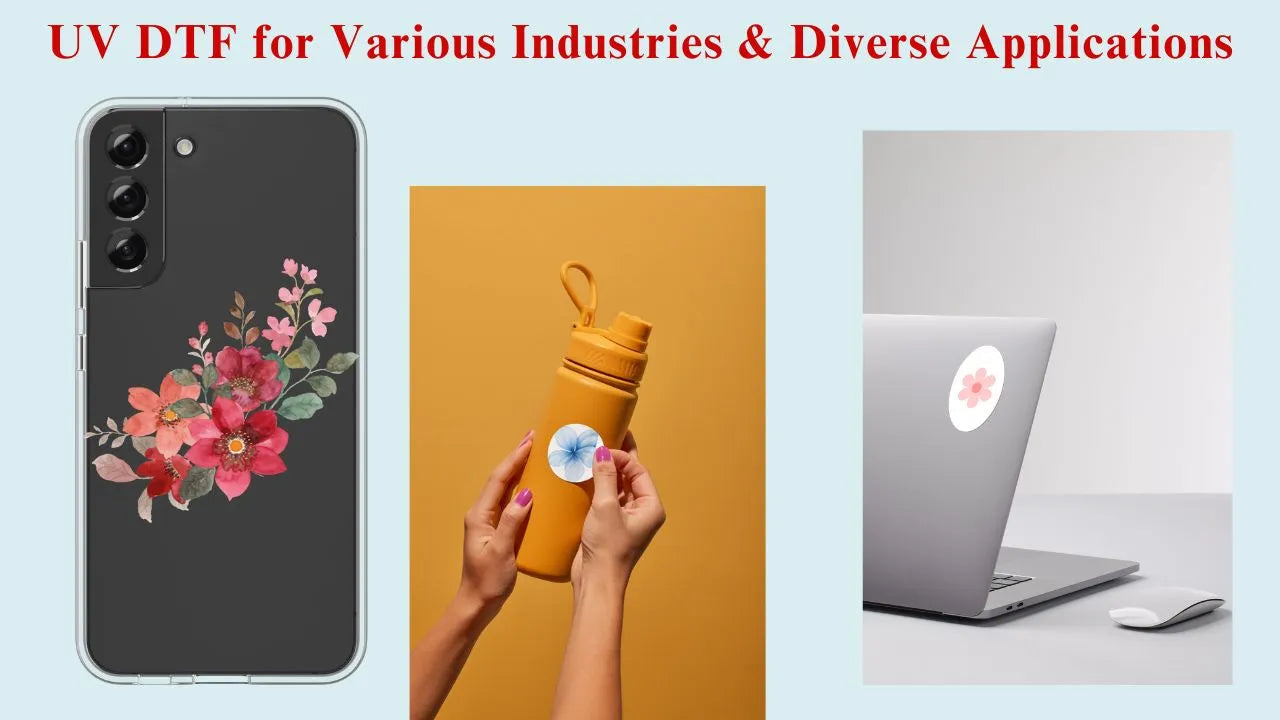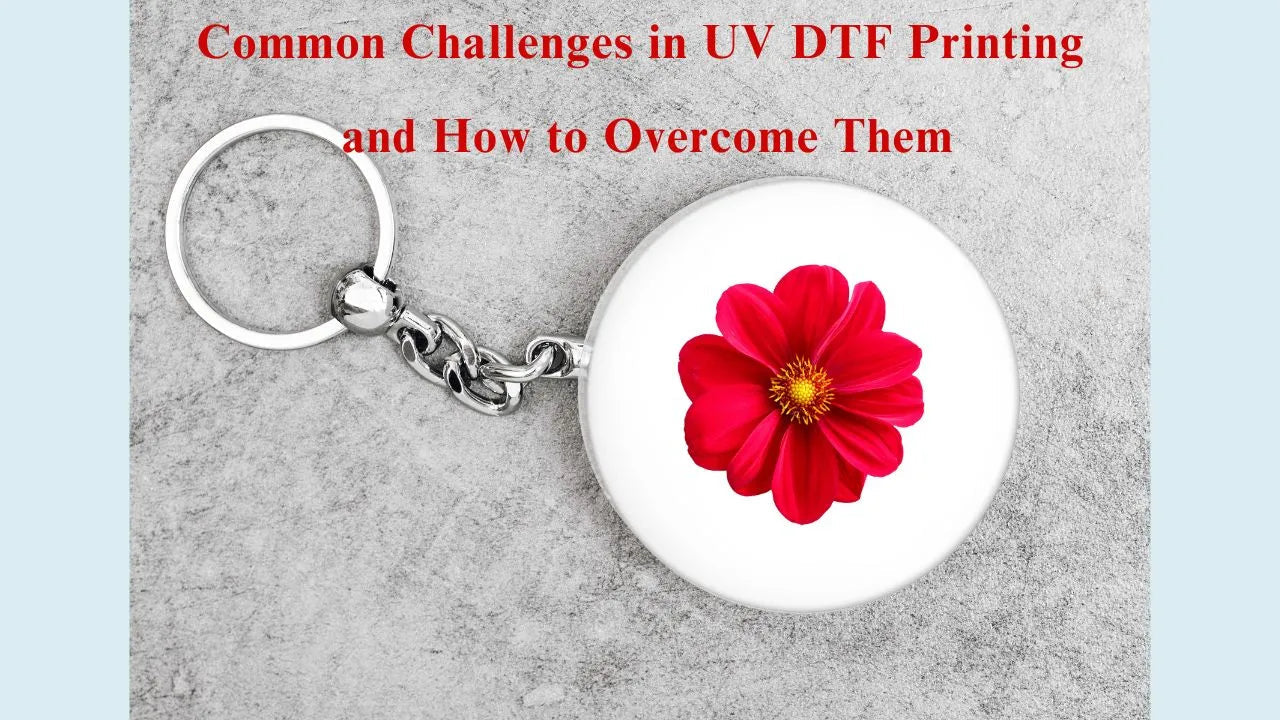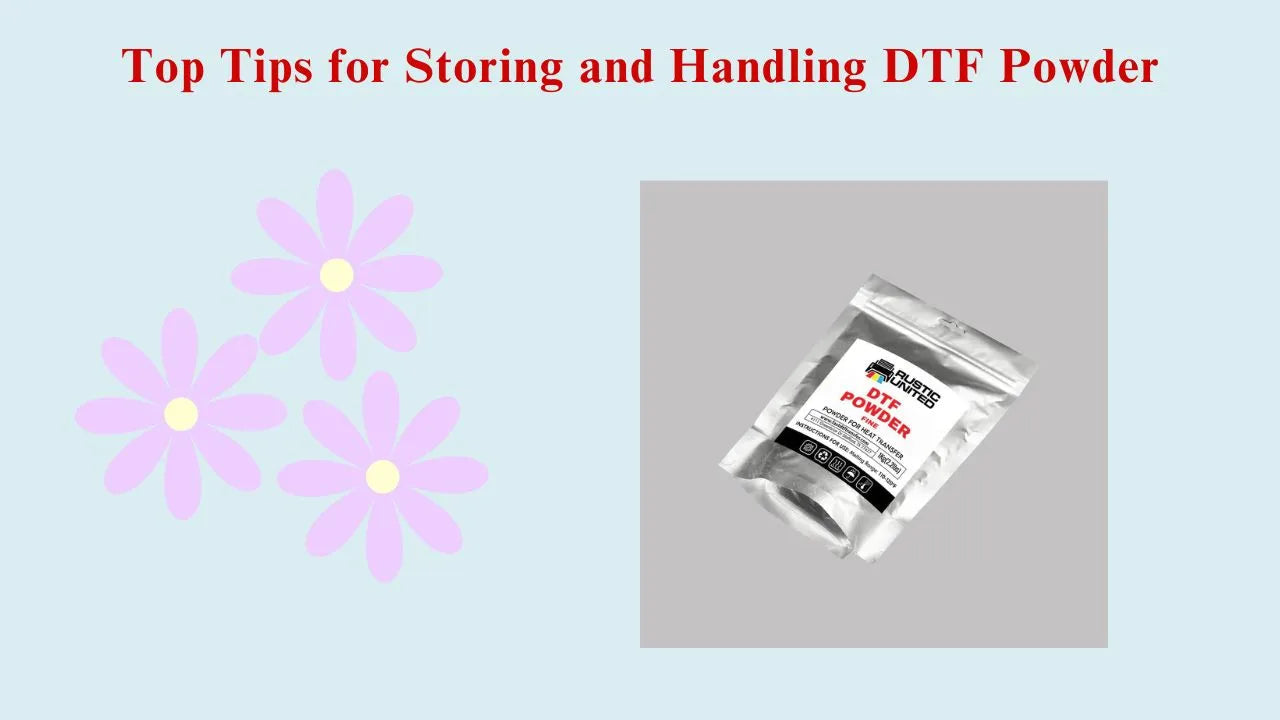
UV DTF for Various Industries & Diverse Applications
UV DTF for Various Industries & Diverse Applications
UV Direct-to-Film (DTF) printing is revolutionizing how businesses and creatives approach custom designs. By combining the precision of UV technology with the flexibility of DTF printing, operators can achieve high-quality, vibrant transfers on a wide range of materials. This technology is ideal for multiple industries, including fashion, promotional products, home UV Direct-to-Film make it a popular choice for modern printing workflows. In this guide, we will explore the benefits, applications, and best practices for using UV Direct-to-Film technology across diverse sectors.
Why UV DTF Stands Out
UV DTF printing uses ultraviolet light to cure ink directly onto specialized film, creating durable and vibrant designs. Unlike traditional DTF, UV curing ensures faster drying times and reduces the risk of smudging or fading. This makes UV DTF particularly suitable for high-volume production and detailed, intricate designs. The process supports fine lines, gradients, and complex graphics, making it highly adaptable for creative projects. Businesses benefit from a reliable, repeatable process that maintains quality across multiple prints.
Applications Across Different Industries
UV Direct-to-Film technology has a broad spectrum of applications. In fashion, it allows designers to create detailed, vibrant graphics on t-shirts, hoodies, and accessories. For promotional products, UV Direct-to-Film can print logos and branding on items such as phone cases, tote bags, and caps. Home décor businesses use UV Direct-to-Film to produce customized wall art, decorative panels, and personalized gifts. In industrial sectors, the technology is applied to signage, control panels, and product labeling, where precision and durability are crucial. The wide applicability makes UV Direct-to-Film a flexible solution for businesses seeking to expand their product offerings.
Benefits of UV Direct-to-Film Printing
UV Direct-to-Film printing offers several advantages over traditional methods. Prints are durable, resistant to fading, and maintain vibrant colors even on challenging materials. The technology reduces setup time and simplifies workflow, allowing for quicker production cycles. Operators can print directly onto films that can be transferred to a variety of substrates, saving both time and materials. Additionally, UV DTF printing supports small runs and custom orders, providing cost-effective solutions for businesses of all sizes. Its ability to maintain detail and clarity ensures professional results for every application.
Compatibility with Diverse Materials
One of the key strengths of UV Direct-to-Film is its compatibility with multiple materials. It works effectively on natural fibers, synthetic fabrics, coated surfaces, and rigid materials. This versatility allows businesses to diversify their product range without investing in multiple types of equipment. Whether printing on apparel, promotional items, or industrial components, UV Direct-to-Film delivers consistent quality. Operators can experiment with different textures, finishes, and substrates to create unique products that stand out in competitive markets.
Ease of Use and Workflow Efficiency
Modern UV Direct-to-Film printers are designed for ease of use. Software interfaces allow for easy design import, color management, and layout optimization. Automated features such as pre-treatment guidance, film feeding, and real-time monitoring minimize errors. Training new staff is faster due to the intuitive controls and workflow support. By simplifying the printing process, UV Direct-to-Film technology allows businesses to maintain consistent quality while improving productivity. Operators can focus on creativity and efficiency rather than troubleshooting common printing issues.
Durability and Long-Term Performance
UV Direct-to-Film prints are known for their durability. When combined with proper heat transfer techniques, the designs maintain adhesion and vibrancy even after repeated use. Prints are resistant to cracking, peeling, and fading, making them suitable for garments, promotional items, and functional industrial components. Long-lasting results reduce returns, enhance customer satisfaction, and contribute to a professional image. Businesses benefit from reliable products that uphold their reputation and minimize waste.
Cost-Effectiveness
While the initial investment in a UV Direct-to-Film printer may be higher than traditional DTF, the long-term benefits make it cost-effective. The technology allows for on-demand production, reducing inventory needs and material waste. Small batch runs are possible without sacrificing quality. Faster production cycles and reduced setup time lead to higher efficiency and lower labor costs. Over time, businesses see improved profitability and return on investment by leveraging the versatility and durability of UV Direct-to-Film printing.
Tips for Optimal Results
To maximize the potential of UV Direct-to-Film printing, it is important to follow best practices. Use high-quality inks and films suitable for UV curing. Regularly maintain and clean the printer to ensure consistent performance. Adjust print resolution and transfer settings according to the substrate for optimal adhesion and clarity. Plan layouts efficiently to reduce material waste. By implementing these practices, operators can achieve precise, vibrant, and professional results for every project.
Expanding Creative Opportunities
UV Direct-to-Film printing opens up numerous creative opportunities. Businesses can produce customized, high-detail graphics that were previously difficult or impossible with traditional methods. Seasonal merchandise, personalized gifts, and specialized industrial products all benefit from the flexibility of this technology. Designers can explore innovative finishes, textures, and multi-layered designs. By leveraging UV Direct-to-Film, businesses can differentiate themselves in crowded markets and offer unique, high-quality products to their customers.
Conclusion
UV Direct-to-Film printing is a versatile and reliable solution for multiple industries. It combines durability, vibrant colors, and efficiency to meet modern production demands. With proper handling, maintenance, and high-quality materials, UV Direct-to-Film allows businesses to create diverse, high-quality products. From apparel to promotional items and industrial applications, this technology supports creativity, scalability, and cost-effective production. By integrating UV Direct-to-Film into operations, businesses can achieve professional results, satisfy customers, and expand their product offerings with confidence.


Leave a comment
This site is protected by hCaptcha and the hCaptcha Privacy Policy and Terms of Service apply.